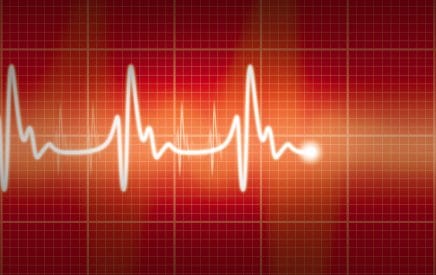New Research reveals that dangerously low blood sugar levels can cause prolonged periods of heart rhythm disturbances and other associated heart issues in older patients with Type 2 diabetes. Because of this finding, information can be detected that could provide a clue as to which low blood sugar levels contribute to life-threatening irregular heart rhythms.
The study, led by led by Professor Simon Heller of the University of Sheffield’s Department of Human Metabolism and Sheffield Teaching Hospitals NHS Foundation Trust, just might offer important information that can target what blood sugar levels contribute to these heart rhythm changes to help in the future, with heart patients.
The study researchers are also helping to provide a reason for the “Dead in Bed” syndrome, which is where young people die in bed without any long-term complications from the disease.
A history of studies has ruled out any direct of effect of hypoglycemia (very low levels of blood sugar) as a cause of death in patients with Type 2 Diabetes.
Patients who took part in this study did not report many symptoms of low blood sugar or irregular heartbeats; they were detected more through continuous glucose monitoring and electrocardiograms, which were tracked by Sheffield researchers.
Elaine Chow, a specialist registrar at Sheffield Teaching Hospitals and the University of Sheffield under a £190K Biomedical Research Fellowship awarded by the National Institute for Health Research conducted the study and the findings are being published in the May issue of Diabetes, the journal of the American Association of Diabetes.
“We don’t want to alarm patients, but what we’ve found is potentially important in explaining a possible mechanism by which low overnight blood sugars lead to prolonged, slow heart rates that could disturb blood flow to the heart, causing life-threatening heart attacks.” said Professor Simon Heller, Professor of Clinical Diabetes and Honorary Consultant Physician, Sheffield Teaching Hospitals NHS Foundation Trust.
“While we expected to find some low overnight blood sugars we were startled to find how extensively it was occurring overnight and that it was sometimes lasting for several hours. When this occurred, we also saw evidence of prolonged periods of very slow heart rate rhythms in patients.
“While a cause for concern, these slow heart rates were not associated with any very serious heart rhythm disturbances in the study. But the findings suggest that even those on standard insulin therapy who are not aiming for intensive glucose targets should be aware of the risk of running low sugars overnight, particularly if they have known cardiovascular disease.”
History of research has focused more on the effects of high blood sugar in patients with diabetes, now researchers are starting to look at low blood sugar for answers.
“In an older group with a known history of cardiovascular disease this might turn out to be something to be very concerned about, but further investigation is needed to confirm the link between overnight low blood sugar levels and abnormal heart rates that disturb the flow of blood to the heart. If patients are aware they have low blood sugar levels, they can act accordingly, perhaps by checking their blood glucose in the middle of the night every now and then and talking with the doctor to change insulin type or the timing of the dose to minimize the risk of prolonged episodes of hypoglycemia overnight.
“Clinicians responsible for the care of patients using insulin to treat Type 2 diabetes need to be more aware of the potential for prolonged nocturnal episodes of hypoglycemia at night. They need to check for it and alter therapy to reduce the risk, especially for those who have known history of cardiovascular disease.”
